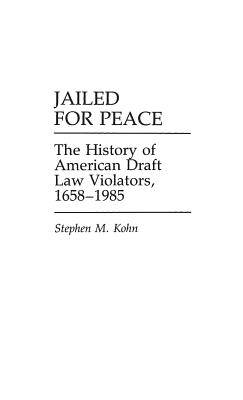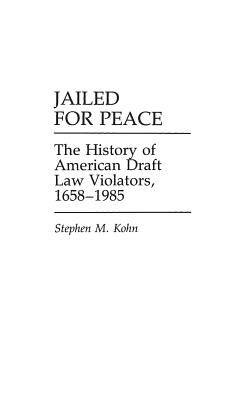
- Afhalen na 1 uur in een winkel met voorraad
- Gratis thuislevering in België vanaf € 30
- Ruim aanbod met 7 miljoen producten
- Afhalen na 1 uur in een winkel met voorraad
- Gratis thuislevering in België vanaf € 30
- Ruim aanbod met 7 miljoen producten
Zoeken
€ 127,45
+ 254 punten
Omschrijving
In this first comprehensive treatment of the subject, Stephen Kohn presents an accessible, clearly written survey of draft resistance in America and its implications for constitutional democracy, domestic and foreign policy, social change, and the movement for world peace. The author explores the roots of the pacifist view and the first expressions of resistance that surfaced during the colonial period. He describes the incidence of draft resistance through the time of the Civil War and how it related to abolitionism. Following the modern conscientious objector through two world wars, Kohn comments on the view of pacifists during popular wars as little better than traitors and on their brutal treatment. Examining the growth of the movement during the Cold War, he addresses the major shift in public attitude that expanded the movement's base of popular support and swelled the ranks of resisters. Draft resistance was to have its greatest impact, however, during the Vietnam War and its aftermath, in influencing public feeling about the war, thwarting the Selective Service's induction efforts, and creating a climate of opinion that contributed to the government's decision to abandon the draft early in the 1970s.
Specificaties
Betrokkenen
- Auteur(s):
- Uitgeverij:
Inhoud
- Aantal bladzijden:
- 181
- Taal:
- Engels
- Reeks:
Eigenschappen
- Productcode (EAN):
- 9780313245862
- Verschijningsdatum:
- 21/01/1986
- Uitvoering:
- Hardcover
- Formaat:
- Genaaid
- Afmetingen:
- 140 mm x 216 mm
- Gewicht:
- 362 g

Alleen bij Standaard Boekhandel
+ 254 punten op je klantenkaart van Standaard Boekhandel
Beoordelingen
We publiceren alleen reviews die voldoen aan de voorwaarden voor reviews. Bekijk onze voorwaarden voor reviews.








